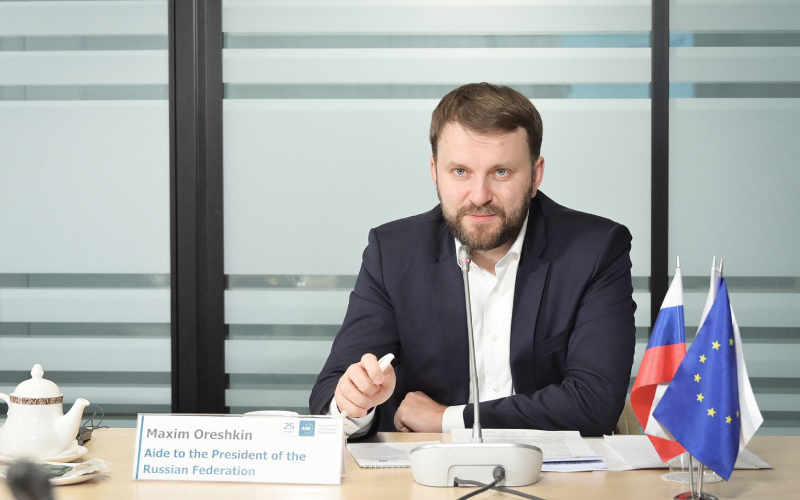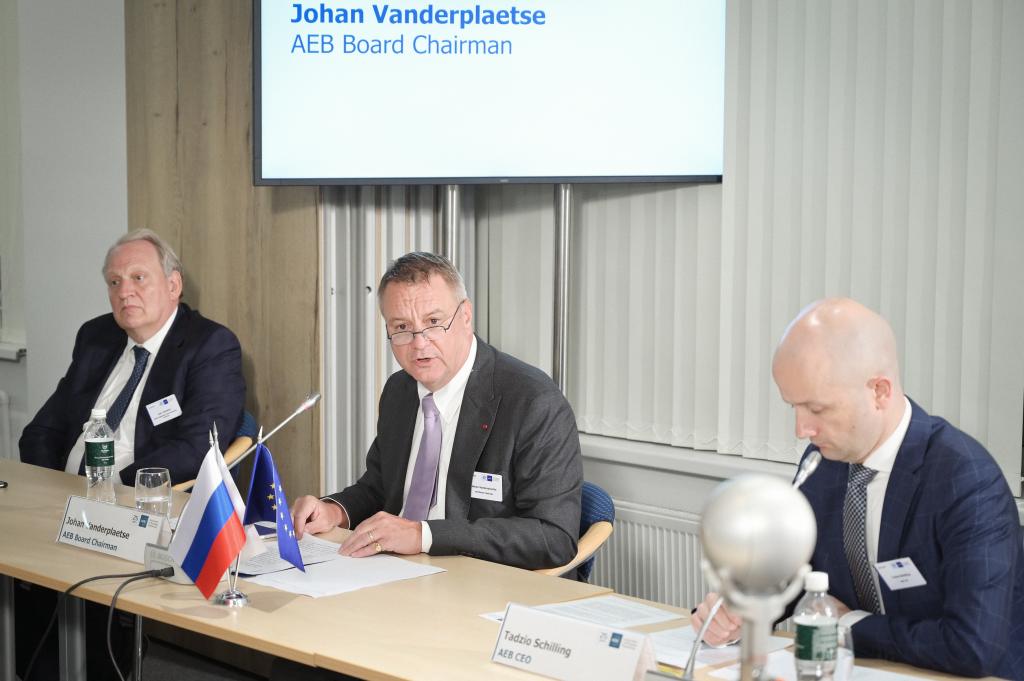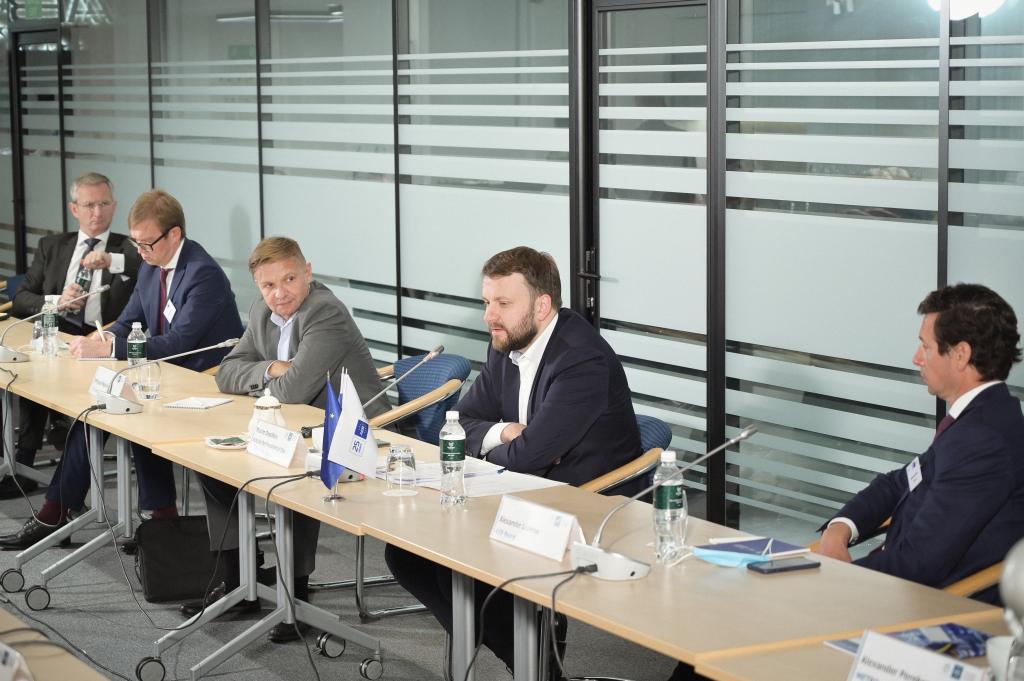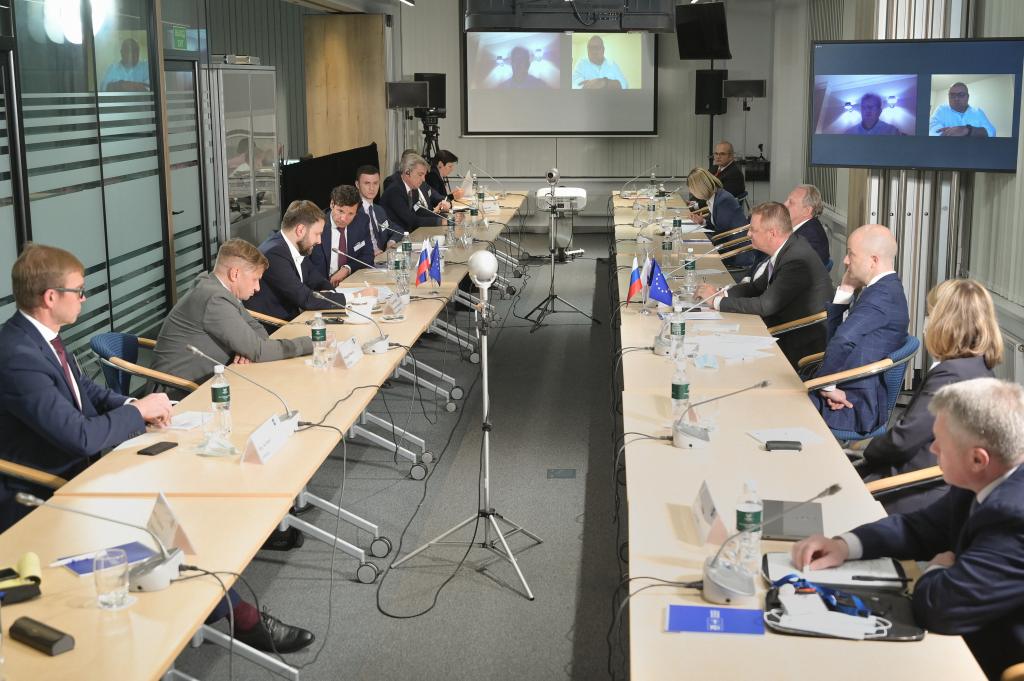News
Aide to the President of the Russian Federation Maxim Oreshkin met with representatives of the Association of European Businesses (AEB)
01.10.2020
On September 30, 2020, Maksim Oreshkin, Aide to the President of the Russian Federation, had a closed meeting with the members of the Board and the top-management of several AEB member companies in the Conference Center of the Association of European Businesses.

The aim of the meeting was to discuss the most pivotal issues of further development and regulation of the economy and business that are of concern to foreign investors in Russia.
Johan Vanderplaetse, Chairman of the AEB Board, stressed the importance of such meetings for European businesses. He thanked Maxim Oreshkin for his long-term dialogue with the AEB members, both as the Minister of Economic Development and the Presidential Aide, as well as for his personal efforts to improve the investment climate in Russia.

The major part of the discussion, moderated by Tadzio Schilling, AEB's CEO, was expectedly focused on the impact of the Coronavirus pandemic on the economy. Tadzio Schilling commented on the AEB-based research data, which showed that European companies remained loyal to the Russian market under the coronary crisis. However, a wide range of businesses shared the opinion that, despite the support measures taken by the government, those measures might turn to be insufficient for the survival of many companies, especially in the SME segment.
Another important topic raised during the meeting was the policy of deepening localization in the Russian market, accompanied by a number of restrictions on the participation of foreign companies in government procurement. As Johan Vanderplaetse emphasized, that "While we believe that it is the duty of any government to stimulate local production and diversify its economy, we hope that foreign companies will also be treated on a similar level playing field as domestic companies".

The AEB representatives could not avoid such an important issue as current situation of Highly Qualified Specialists. The present restrictions do not permit the free movement from and to the territory of the Russian Federation of those workers and their family members, most often top managers of European companies. As noted by foreign business representatives, the absence of a detailed procedure for obtaining an entry permit, its uncertain timing and the inability to come to Russia with their families had a highly negative impact on foreign companies - employers doing business in Russia - as it led to serious difficulties in their work.

The participants of the meeting also discussed the status of the SPIC regime, prospects for low-carbon development of the Russian economy, double-tax regime, parallel imports, track & trace system and other issues.
Login
You are successfully registered



 Get it on
Get it on Download on the
Download on the